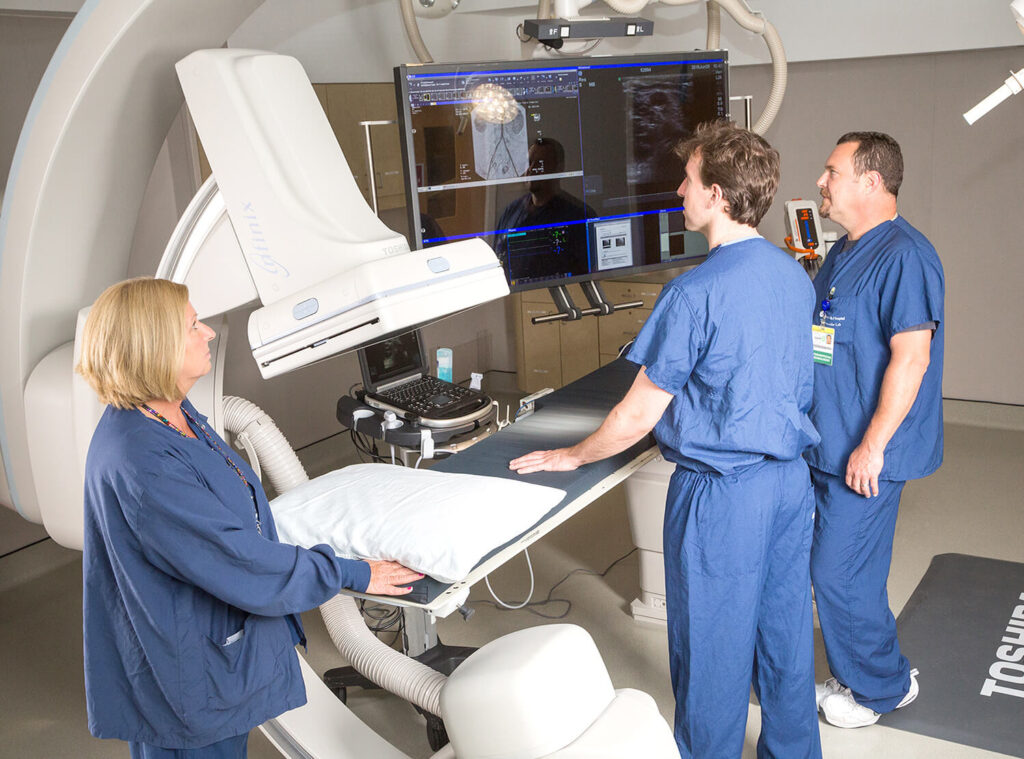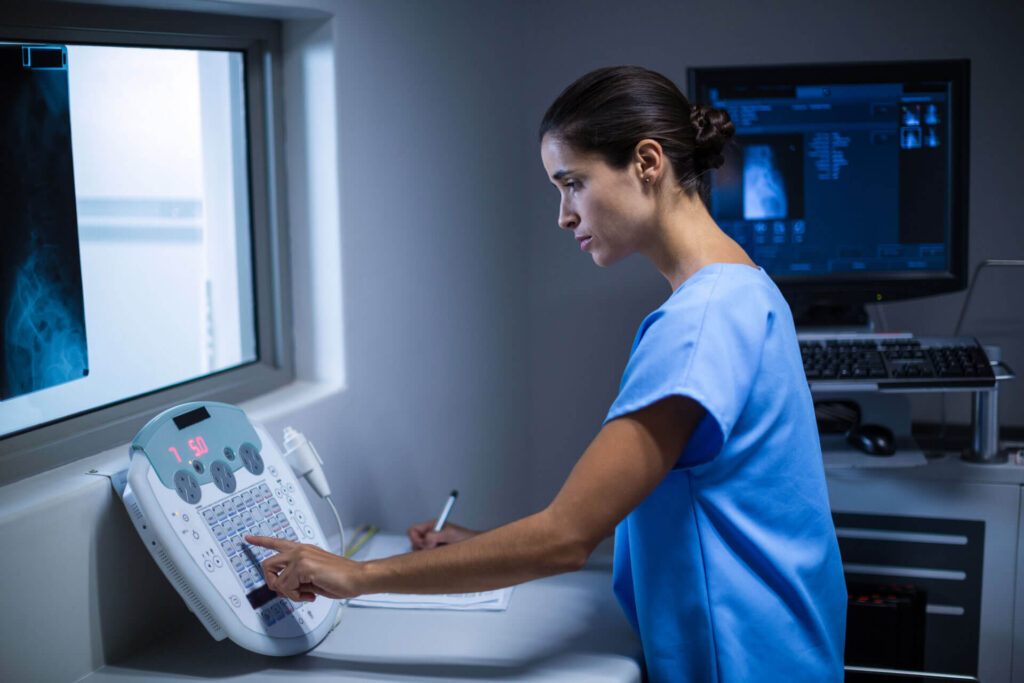In today’s article, find out everything you need to know about the job of interventional radiology (IR) nurse in one place: what are the minimum requirements, how to become an IR nurse, how does the job itself look like and an average salary of an interventional nurse.
What is an interventional radiology nurse?
IR Nurses are a very important part of the radiology team as they work alongside the interventional radiologist, vascular surgeon, and endovascular neurosurgeon. The interventional radiology nurse cares for cardiac patients by monitoring the patient for complications, administering medications, and also plays an important role in communicating with patients and educating them about all procedures. They must have excellent advanced cardiovascular life support (ACLS) skills.
Why become a radiology nurse?
As a radiology nurse practitioner, you have a variety of options for where you can work. From academic medical centres to freestanding radiology clinics to community hospitals and more.
Nurses in this sector can work in a variety of modalities and specialities. IR Nurses enjoy the versatility of the profession and the various opportunities to advance in their careers.
IR nurses have a very broad knowledge base and care for patients with varying degrees of illness. One moment they may be working on an ultrasound and the next they are administering a glucagon injection. Nurses who love to be flexible on the job and change up their routines are the ones who thrive best in this profession.
Another fact worth mentioning is that radiology nursing is a rapidly growing field with very good job prospects. As our technology increases, so does the need for radiology nurses. This growing demand is a great opportunity for a career, as are the varied options available for your career path.
Are you looking for a job? Create your profile on Velju and find your next dream job.

How to become a radiology nurse
The first step on your path to becoming a radiology nurse is to become licensed as a nurse. Most employers require a Bachelor of Science in Nursing (BSN), while sometimes you only need an ADN (Associate of Science in Nursing). After completing one of the programs, you will need to take the registered nurse exam, which may be called differently depending on the state.
If you want to become a specialist in a particular field, you will need to earn a Master of Science in Nursing or a Doctor of Nursing Practice in one of the fields.
How do radiology nurses impact patient care?
Radiology nurses provide complex medical care and are very important members of the radiology team. IR Nurses are experts in their field, able to integrate the skills of other nursing specialists to provide the best possible care.
They assess quickly, provide immediate assistance, position patients, and perform some complex tasks similar to those of operating room nurses and critical care nurses. They are experts in minimal sedation and administering analgesics. IR Nurses provide safety before, during and after procedures and coordinate care between the radiology department and other medical areas of the facility.

Interventional radiology nurse salary
The salary of interventional radiology nurses varies around the world, as might be expected. In the United States, the average salary for this position is $80,010 (€70,965) per year, while in Europe it depends on the country you work in.
In the United Kingdom, the average salary is €39,157, while in Germany you will find an average salary of €63,518. Salary also depends on your level of experience, as entry-level jobs are usually at the lower end of the average salary.
Not your cup of tea? See if you’d better like to work as an Emergency Room Nurse.
FAQ
How can I become an IR nurse?
For you to become an IR nurse practitioner, you must become a certified nurse and then go down the path of training in radiology. You will need at least an Associate of Science in Nursing, but for most jobs, you will need a Bachelor’s degree.
Can I become a radiologist if I’m a nurse?
Yes, you can become a radiologist if you are a nurse, but it will not be easy. You need to be fully committed to becoming a doctor and be aware that medical school is stressful and you will need to invest a lot of time and patience. You will need to complete a bachelor’s degree in a science subject and then study at a medical school for 4 years to get a medical licence.
After that, you will need to complete a residency and some additional training.
If all of this seems too time-consuming or stressful, you can choose to do something different but similar, such as becoming a radiology technician. Or, if you want a totally different career path, maybe a job as a Care Assistant will suit you better.




